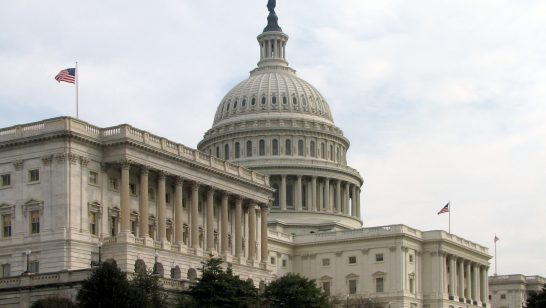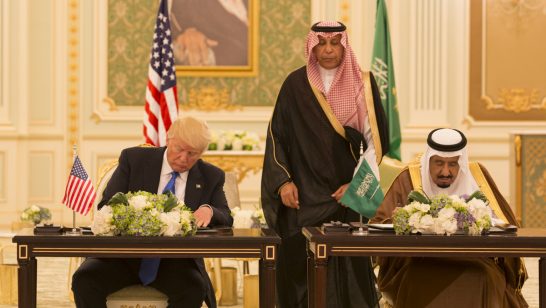
It has taken President Trump over a year to explain why he wants to renegotiate the Joint Comprehensive Plan of Action with Iran (JCPOA) which he has repeatedly qualified since the beginning of his candidacy as “the worst deal ever negotiated”. Now his explanations are unpersuasive.
His announcement came on October 13 on the eve of the latest deadline for certification by the US Administration to Congress of whether or not the Plan of Action remains in the national security interest of the United States and Iran is abiding by it. In his statement, President Trump affirmed that from now on he “cannot and will not make this certification”. He will leave it to Congress to decide whether to re- introduce the sanctions connected with Tehran’s nuclear activities which had been withdraw by the US as a part of the Plan of Action agreement.
Certification of Iranian compliance should not be the task of the either the US Administration or the US Congress. That’s the job of the International Atomic Energy Agency (IAEA) which regularly monitors all Iran’s nuclear activities through an enhanced inspection regime. So far IAEA Director General Amano has regularly certified Iran’s compliance. Even President Trump’s closest collaborators have been unable to find any significant loophole. The President was obliged to resort to the weakest argument: an alleged violation of the “spirit” of the agreement.
In addition to the presidential statement, the White House issued a text sketching a new US strategy towards Iran. But the reasons that this document gives to justify President Trump’s decision are unrelated to the JCPOA and to the Iranian nuclear issue.
It is true that “outstanding problems” such as human rights, the death penalty, Iran’s missile programmes, the role of proxy militias and Iran’s regional responsibilities still exist and are legitimate concerns for US national security. But they continue to be addressed both bilaterally with Tehran and within the framework of the competent international fora. President Trump is mistaken if he believes that pressure on the Iran nuclear deal or its dismantlement will materially assist. Such action is more likely to increase hostile Iranian behaviour.
No one claims that the present set up in Iran corresponds to the Iran of our dreams. But it is poor strategy to question the legitimacy of Iranian institutions and refer to Iran’s supreme leader Khamenei in derogatory terms. Iran is a country with a long history and a deep culture. Only an inexperienced leader would fall into the trap of publicly interfering in the domestic affairs of another state and repeating the major mistake of President Trump’s Republican predecessor in labeling Iran a “rogue state”. Such an approach stubbornly ignores the fact that a moderate leadership now governs Iran: President Rouhani is not Ahmedinejad. Iranian moderates risk being swept away should the nuclear agreement collapse.
With hardliners at the helm, there would be no legal way to counter a resumption of Iran’s previous nuclear programme. The tone of the President’s speech reflects an ignorance of present day conditions. The absence of an American Embassy in Tehran for many decades surely contributes to this disconnect from reality.
So where does the JCPOA now stand? It lives to fight another day, albeit undermined. With the “de-certification” of the deal, the battle over the JCPOA now moves to the Republican-led US Congress who, under the US special provisions related to the JCPOA, now have 60 days to act by simple majority (but who can in principle at any time, like Trump, act against the agreement under normal congressional rules).
Domestic electoral calculations rather strategic concerns will predominate. But the relative weakness of the Trump Administration’s case may give some Republican Senators pause. So may the obvious differences between President Trump and his national security team. Defence Secretary Mattis on 3 October told US Senators that he believed it was in US national security interests to remain in the JCPOA at the present time.
There will be increased scope for lobbying of US opinion by international parliamentarians, civil society, and think tanks. The same goes for industrial and financial establishments which benefit from Iran’s opening to international markets, including the US company Boeing which has agreed an at least $8 billion aircraft sale.
Perhaps most crucial and sensitive for potential swing Republican Senators will be the reactions of the JCPOA’s other signatories and US regional allies. In the region, only Israel and Gulf countries led by Saudi Arabia and Israel have joined the US in this crusade. Crucially, Iranian reaction, while hostile, has so far been relatively restrained and unprovocative. And all the JCPOA’s other signatories – among them the United States’ closest Western Allies – have responded negatively to President Trump’s approach.
The President and his Secretary of State say they consulted some of their European partners before the announcement. Judging from the reactions, the US arguments were unconvincing. Russia and China have been consistently opposed. The leaders of the UK, France and Germany expressed “concern” at the possible implications of Trump’s announcement. The EU High Representative Federica Mogherini, who has always staunchly defended the JCPOA said “This deal is not a bilateral agreement….The international community, and the European Union with it, has clearly indicated that the deal is, and will, continue to be in place.”
It is the US not Iran that is now internationally isolated. US leverage over Iran has correspondingly diminished. This will not be lost on more internationally-minded US Senators. They will be right to sense that US-Europe relations are at a watershed moment. Mogherini has managed to construct a solid European consensus which will not only want to counter any decision by the US Congress to re-impose sanctions or set new nuclear conditions but which could become the basis on which to strengthen the European Union’s posture on nuclear issues more generally.
The opinions articulated above represent the views of the author(s), and do not necessarily reflect the position of the European Leadership Network or any of its members. The ELN’s aim is to encourage debates that will help develop Europe’s capacity to address the pressing foreign, defence, and security challenges of our time.



